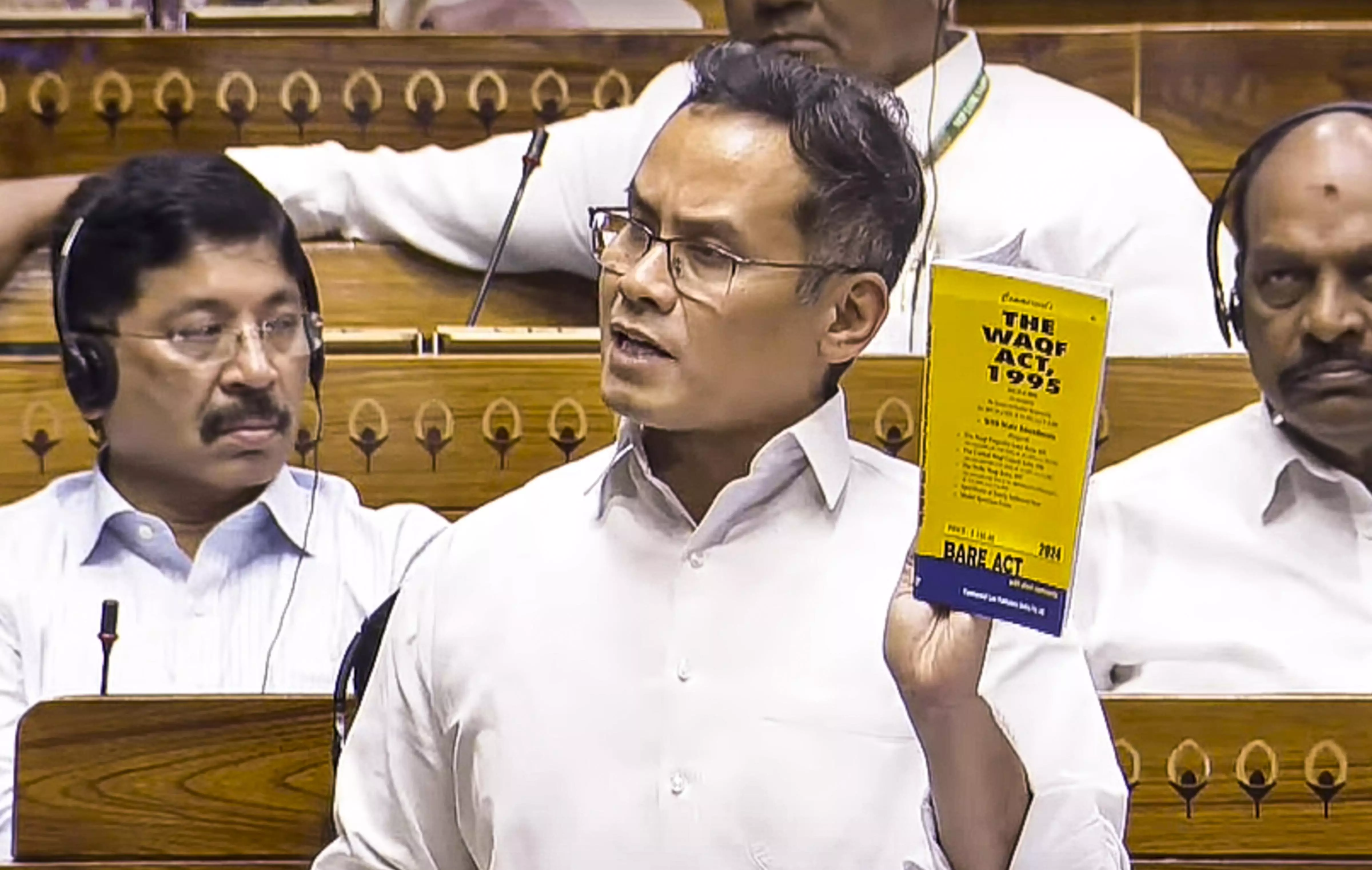Waqf Bill sparks widespread protest, opposition calls it an attack on constitution

New Delhi: The All India Muslim Personal Law Board (AIMPLB) and other Muslim organizations have strongly opposed the Waqf (Amendment) Bill, warning that the amendments threaten religious autonomy. Senior AIMPLB member Maulana Khalid Rashid Farangi Mahali criticized the government’s disregard for concerns raised before the Joint Parliamentary Committee (JPC), fueling protests in Delhi, Patna, and other cities. Religious leaders likened Waqf properties to essential Islamic tenets and warned of potential government encroachment.
Ittihad-e-Millat Council chief Maulana Tauqeer Raza dismissed the bill as an attempt to "harass Muslims and seize their lands," vowing to resist its implementation. AIMPLB member Md Adeeb called for widespread resistance, describing the bill as discriminatory and communally motivated. Vice President Mohammad Ali Mohsin warned of large-scale protests, including road blockades and peaceful demonstrations, until the bill is withdrawn. However, legal experts have offered mixed assessments. Varanasi-based lawyer Vishnu Shankar Jain defended aspects of the bill, arguing that it seeks to regulate unchecked powers of Waqf boards, though he acknowledged that some provisions require further clarification.
INDIA Bloc and Congress Denounce Bill as Unconstitutional
Congress MP Gaurav Gogoi has condemned the bill, calling it an attack on the Constitution's basic structure. He accused the government of using the legislation to dilute constitutional protections, disenfranchise minorities, and create social divisions. Gogoi also criticized the government for failing to consult religious communities before drafting the amendments and raised concerns over its provisions defining religious identity.
Andhra Pradesh Congress Chief Y S Sharmila Reddy has strongly opposed the bill, calling it an infringement on the religious rights of Muslims. Labeling it a "plot to suppress minorities," she described its introduction as a "black day" for India and accused the Modi government of targeting Muslim sentiments. Sharmila criticized provisions requiring 300-year-old documentation for Waqf properties and mandating a five-year Islamic practice period before dedicating property to Waqf. She also accused the Telugu Desam Party (TDP) and Jana Sena of betraying minority interests by supporting the bill.
BRS, CPI(M), and Other Opposition Parties Take a Firm Stand
The Bharat Rashtra Samithi (BRS) has vowed to oppose the bill in the Rajya Sabha, where it holds four seats. BRS leaders argue that the bill threatens religious rights and undermines Waqf institutions.
The Communist Party of India (Marxist) [CPI(M)] has reaffirmed its opposition, dismissing the Kerala Catholic Bishops' Council's (KCBC) support for certain provisions. CPI(M) state secretary M V Govindan called the bill "anti-Waqf" and warned it could deepen communal divisions. Protests have erupted in Kerala, with opposition parties accusing the government of weakening minority protections.
Opposition and Religious Groups' Strong Reactions
Speaker Om Birla rejected opposition claims that the government lacked the authority to introduce new provisions in the amended bill. Union Home Minister Amit Shah defended the bill, stating that it was tabled after extensive JPC consultations and approved by the Union Cabinet before being introduced in the House. He contrasted the JPC’s democratic approach with previous Congress-led committees.
Stalin Urges PM to Withdraw Controversial Bill
Tamil Nadu Chief Minister M K Stalin has formally urged Prime Minister Narendra Modi to withdraw the Waqf (Amendment) Bill, arguing that it infringes on constitutional safeguards for minorities. In his letter, Stalin emphasized that Tamil Nadu's Legislative Assembly had already passed a resolution rejecting the bill, asserting that the existing Waqf Act, 1995, adequately protects Waqf assets. Highlighting controversial provisions such as the inclusion of non-Muslim members in State Waqf Boards and the removal of the ‘Waqf by user’ principle, Stalin warned that these changes threaten India’s pluralistic heritage. "The bill undermines the nation's syncretic culture and must be revoked immediately," he stated.
As the bill progresses in Parliament, the debate remains heated. With opposition parties, religious organizations, and legal experts deeply divided, the protests are expected to escalate, signaling a prolonged battle over its implications for minority rights and religious freedoms.



